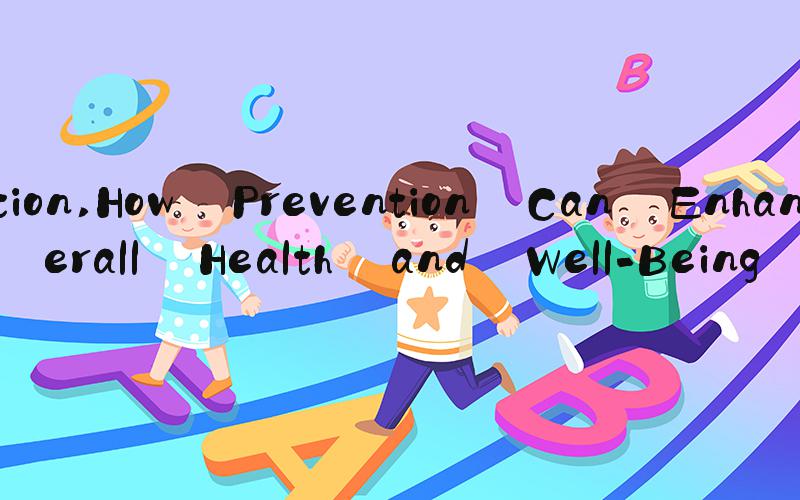AI答案
 Prevention: Taking Steps to Avoid or Lessen the Impact of Negative Outcomes
Prevention: Taking Steps to Avoid or Lessen the Impact of Negative OutcomesPrevention is a proactive strategy for avoiding negative outcomes. It involves taking measures to avoid or lessen the impact of negative occurrences. These strategies can include avoiding risky behaviors, ensuring regular medical check-ups, maintaining a healthy lifestyle, and being aware of potential dangers in the environment. Preventive measures can help to keep individuals in good health and reduce the likelihood of suffering from many types of diseases, illnesses, and injuries.
How Prevention Can Enhance Overall Health and Well-BeingPrevention is critical to promoting overall health and well-being. By taking steps to avoid illness and injury, people can maintain their physical, emotional, and mental health. This includes adopting the right habits, such as eating a balanced diet, getting the recommended amount of exercise, getting enough sleep, and reducing stress. Regular medical check-ups can also help to detect potential health issues early on, which can increase the chances of successful treatment.
Lifestyle Changes Can Strengthen the Benefits of PreventionA healthy lifestyle is another key component of prevention. People can help to reduce their risk of developing many types of diseases, including heart disease, diabetes, and cancer, by adopting healthy habits. These habits can include eating a diet that is rich in fruits, vegetables, and whole grains, avoiding smoking and excessive alcohol consumption, and engaging in regular physical activity. Small changes to one's lifestyle can make a big difference in overall health and well-being.
Risk Factors Can Impact Prevention StrategiesPrevention strategies can vary depending on a person's risk factors. Certain risk factors, such as genetics or family history, can increase the likelihood of developing certain illnesses or diseases. Other risk factors can include environmental factors, such as exposure to pollution, occupational hazards, or unhealthy living conditions. These factors may require additional or modified prevention strategies to ensure maximum protection against negative health outcomes.
Prevention is Cost-EffectivePrevention strategies can be a cost-effective way of managing healthcare expenditure. By investing in prevention, governments, health care providers, and individuals may be able to save money in the long term. Preventive measures such as regular check-ups, immunizations, and screenings can help to detect potential health issues before they become more serious and costly to treat. Furthermore, healthy habits can also help to reduce the likelihood of developing chronic diseases, which are often expensive to manage and can place a heavy burden on healthcare systems.
ConclusionPrevention is a proactive strategy for avoiding negative outcomes. It involves taking measures to avoid or lessen the impact of negative occurrences. By adopting healthy habits and practicing prevention strategies, individuals can help to maintain their physical, emotional, and mental health. Preventive measures can also help to reduce healthcare expenditure and place less of a burden on healthcare systems.
